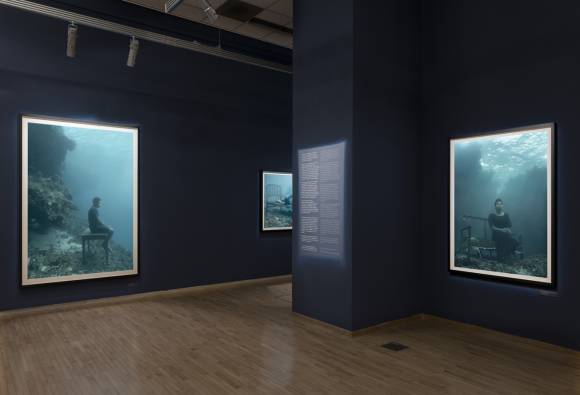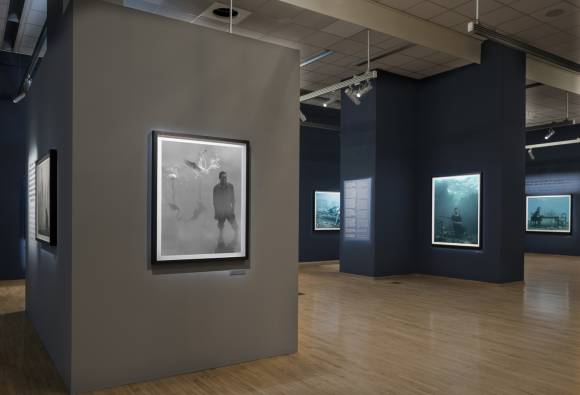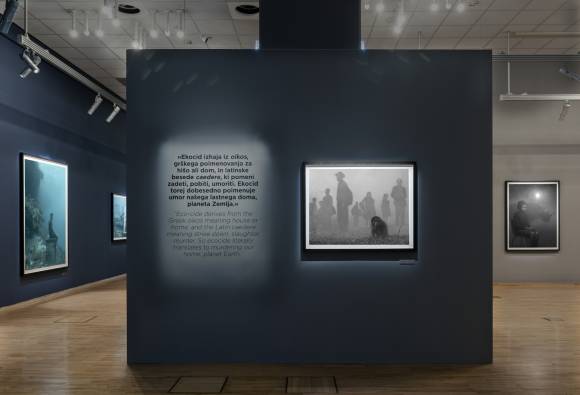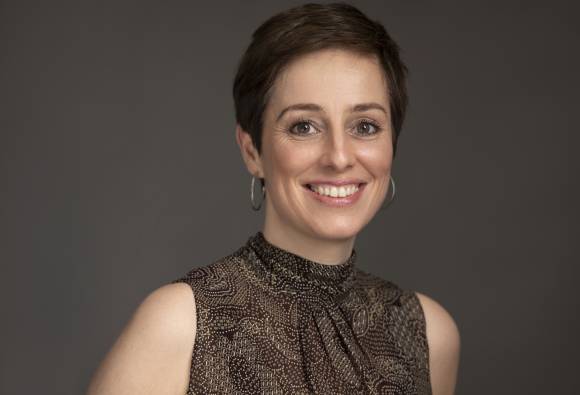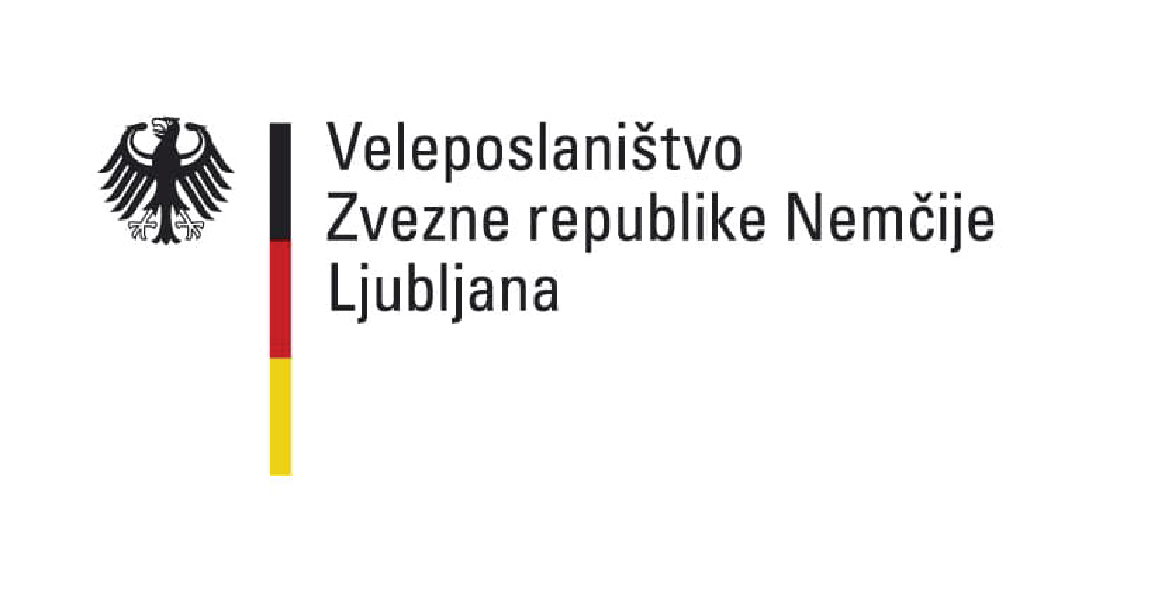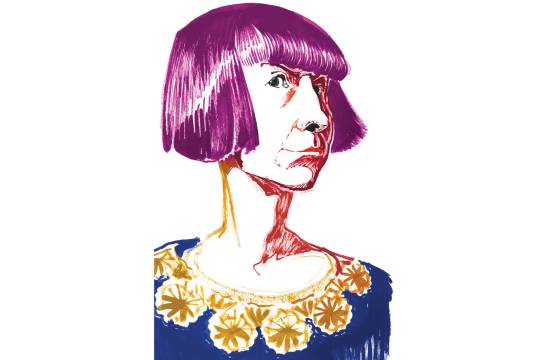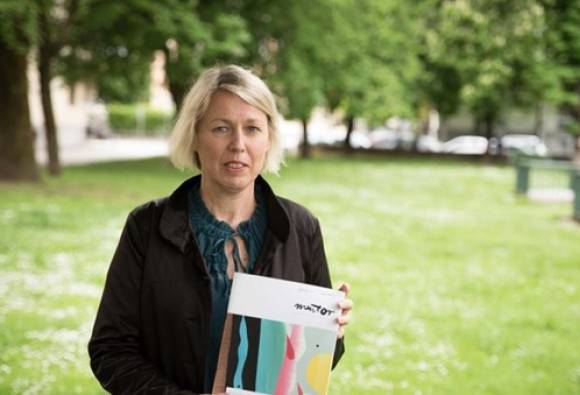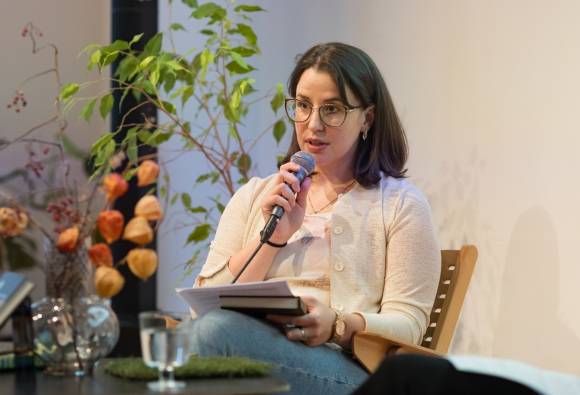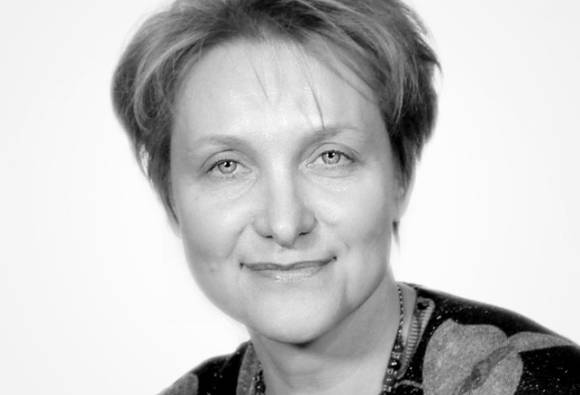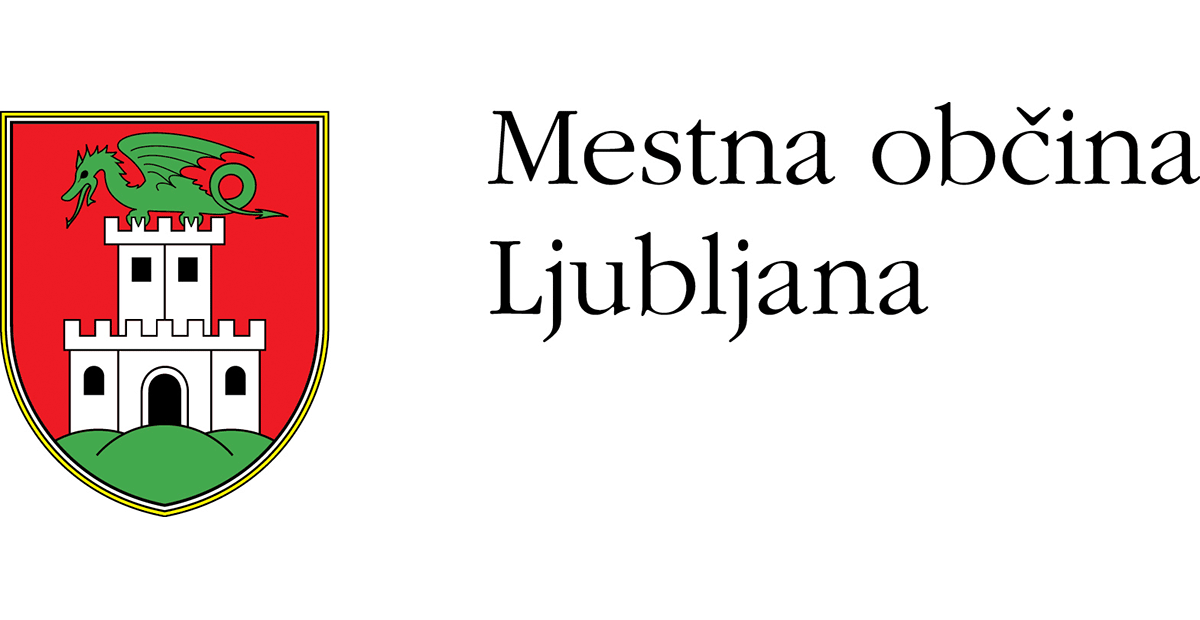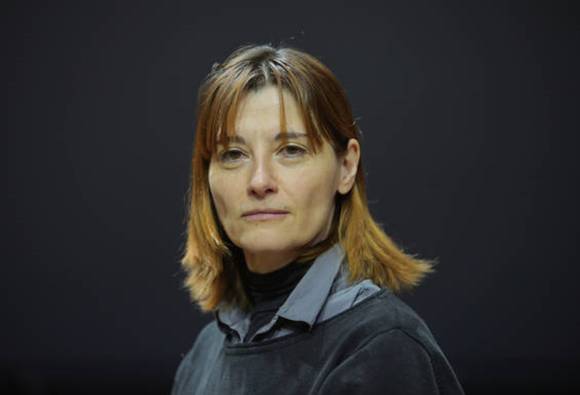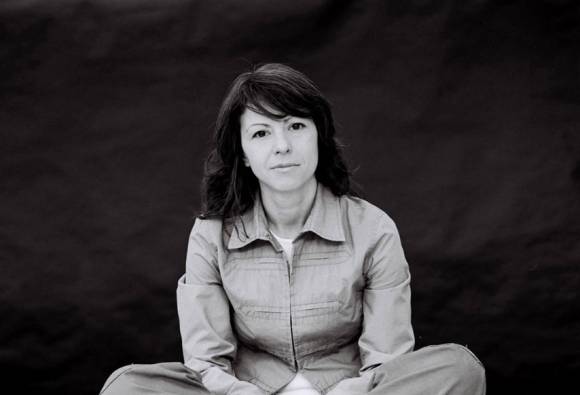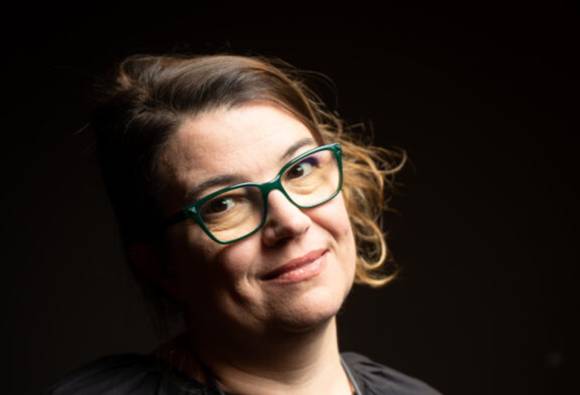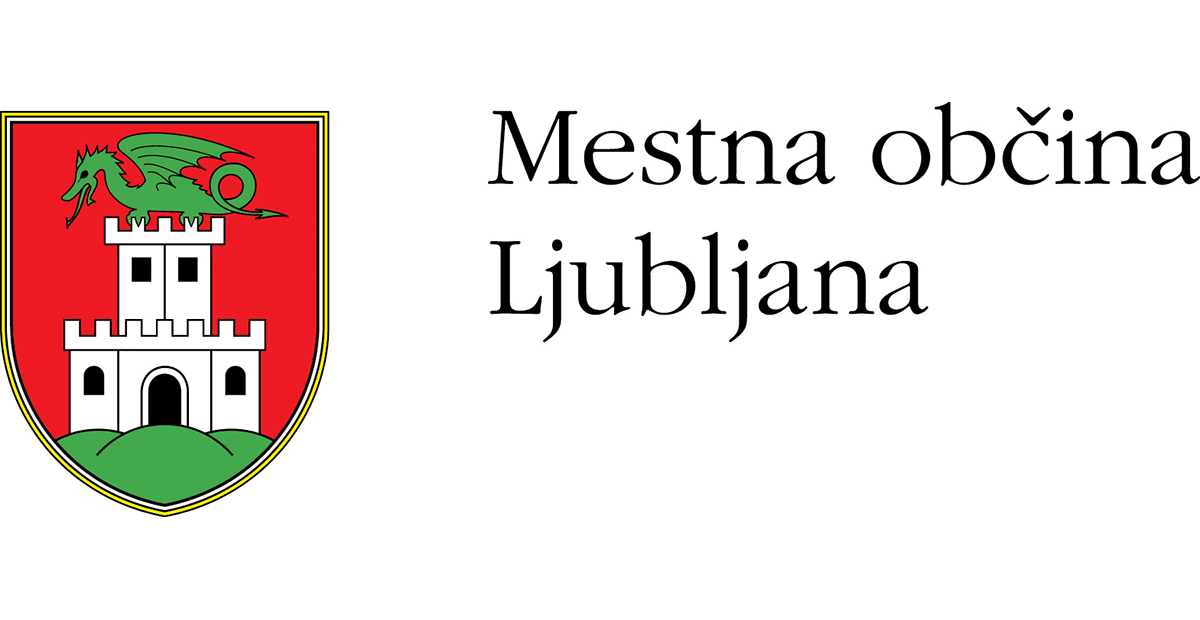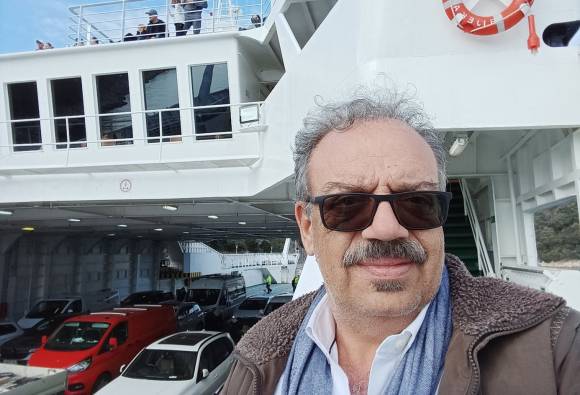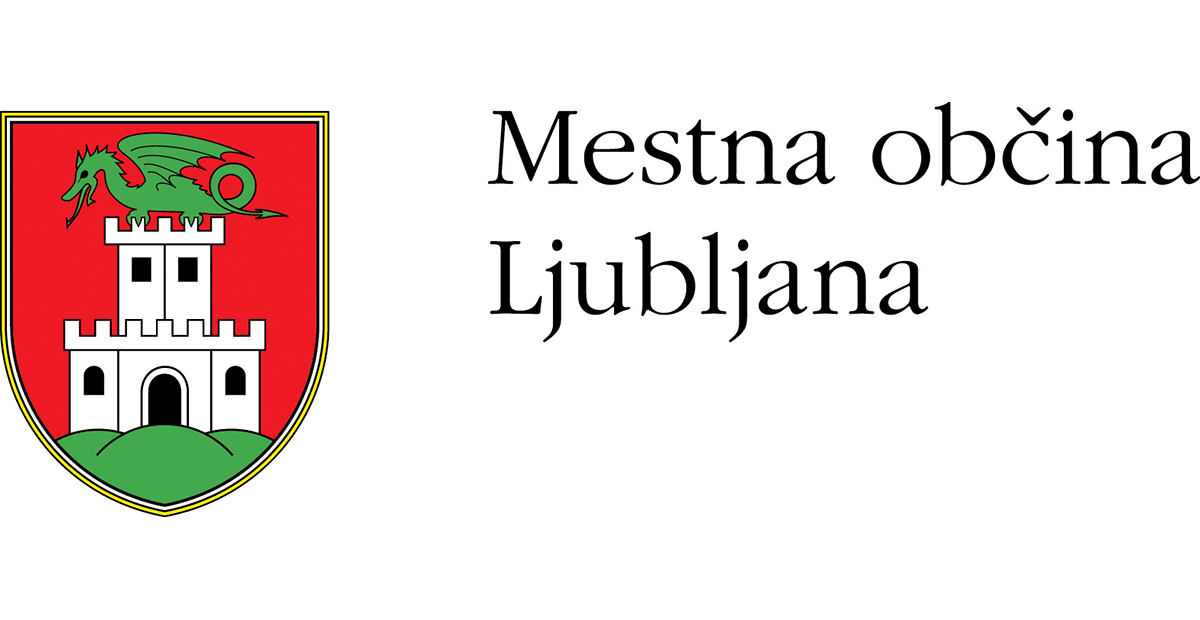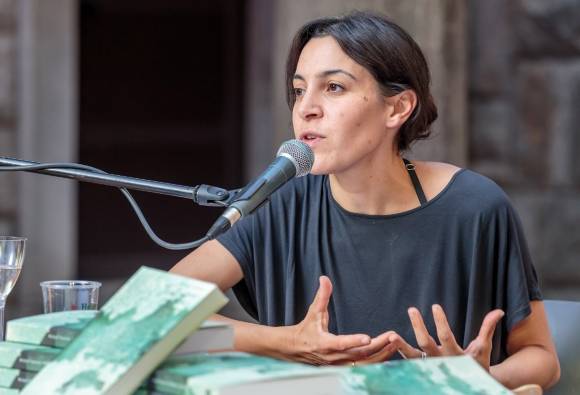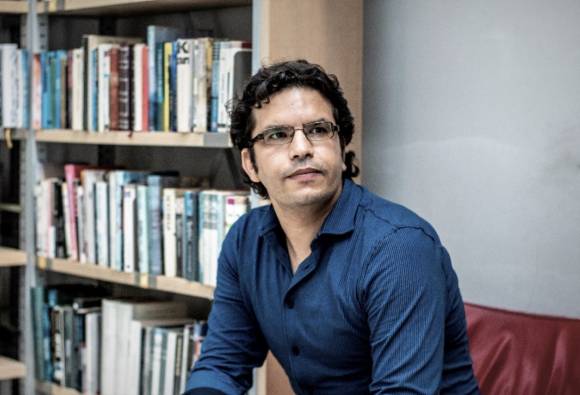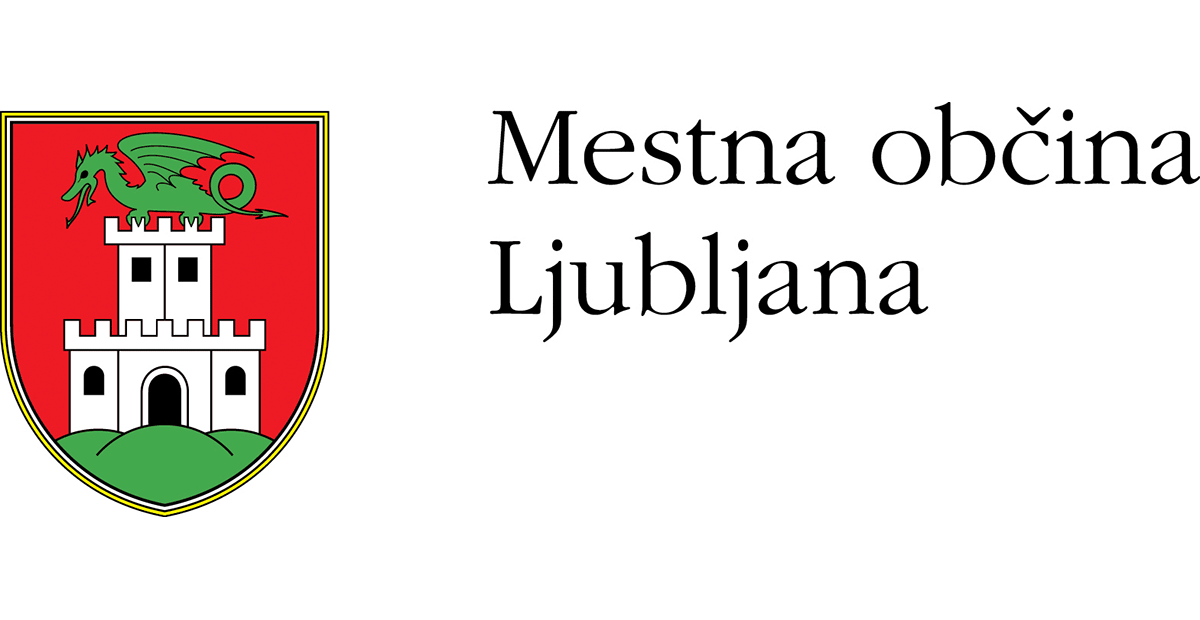
Nick Brandt v živo
Pogovor s fotografom bosta vodili kustosinji razstave Napočil bo dan Barbara Čeferin (ustanoviteljica Galerije Fotografije) in Katarina Hergouth, vodja razstavnega programa v Cankarjevem domu.
Ob svoji veliki razstavi Napočil bo dan, ki jo do začetka septembra gosti Galerija Cankarjevega doma (poglavja I do III) ter Galerija Fotografija (poglavje IV) bo Ljubljano obiskal eden največjih okoljevarstvenih fotografov današnjega časa, Nick Brandt.
V Londonu rojeni fotograf Nick Brandt (1964) je študiral slikarstvo in film (na Saint Martin's School of Art). Med režiranjem epskega videospota Earth Song Michaela Jacksona v Tanzaniji leta 1995 se je zaljubil v živali in vzhodnoafriško pokrajino. Kmalu za tem je ustvaril svojo prvo fotografsko serijo On This Earth (2000–05), ki s poznejšima cikloma A Shadow Falls (2009) in Across the Ravaged Land (2013) sestavlja trilogijo. On This Earth je leta 2005 izšla v knjižni obliki z uvodi naravovarstvenice in primatologinje Jane Goodall, pisateljice Alice Sebold in fotografske kritičarke Vicki Goldberg.
Poznejši seriji Inherit the Dust (2016) in This Empty World (2019) sta bili prav tako posneti v vzhodni Afriki.
Leta 2010 je Brandt v Keniji/Tanzaniji soustanovil neprofitno organizacijo Big Life Foundation, ki več kot tristo petdeset lokalnih čuvajev oz. naravovarstvenih nadzornikov zaposluje za varovanje in ohranjanje 1,6 milijona hektarjev zaščitenega ekosistema Amboseli/Kilimandžaro.
Njegove fotografije so del številnih javnih in zasebnih zbirk. Pri svojem delu se osredotoča na posledice uničevanja okolja in podnebnega zloma tako za najbolj ranljive prebivalce planeta kot tudi za živalski in naravni svet.
V sodelovanju z Galerijo Fotografijo in WILLAS Contemporary
Napočil bo dan in svet bo razdejan. Morda pa napoči dan, ko se zasvita nova zora.
Nick Brandt v živo

Literary Dialogue: Slovenia – Spain
Guests: Liu Zakrajšek and Marta Carnicero
The Embassy of Spain and Cankarjev Dom organize another Literary Dialogue: Slovenia – Spain.
The aim of this event is to unite authors, critics, editors, journalists, literary agents, students and general public in order to exchange ideas and experiences on different topics, generating debate on innovative proposals. Ultimately, we aspire to bring both countries even closer and to get to know each other better through our literatures and intellectuals.
In this dialogue, moderated by writer Carlos Pascual, the important literary and current topics will be discussed by representatives of contemporary literature, the Slovenian writer Liu Zakrajšek and the Spanish writer Marta Carnicero.
Simultaneous interpretation in Slovene and Spanish will be provided.
Literary Dialogue: Slovenia – Spain
Free tickets

Populism, Propaganda and Pop Culture
Lecture/Discussion
Prof. Dr. Marcus Stiglegger teaches film and cultural studies at the university of Freiburg and the Muenster School of Design. He received his doctorate with the dissertation Sadiconzista - Fascism and Sexuality in Film and habilitated in 2005 with the monograph Ritual and Seduction, in which he developed the seduction theory of film. He writes regularly for film magazines such as film-Dienst and epd Film and founded the magazine Ikonen. He is also a musician, writes screenplays and runs the podcast Projektionen. With the participation of: Anuška Delić, Dr. Gregor Moder, Bernhard Winkler, M.A.
Anuška Delić is an investigative and data journalist who leads a unique two-headed microregional nonprofit investigative journalism center, Oštro in Slovenia and Oštro in Croatia. She is also a Balkans regional editor with the Organized Crime and Corruption Reporting Project (OCCRP).
She established “The MEPs Project” which brought together journalists that represented all 28 EU member states. As a member of ground-breaking global investigations, such as the Panama Papers, Paradise Papers, FinCEN Files and The Laundromats she is a co-recipient of several awards, including the Pulitzer Prize on Explanatory Reporting.
Dr. Gregor Moder is philosopher and scholar. He studied philosophy at the Faculty of Philosophy at the University of Ljubljana and received his doctorate in 2009 with a comparative thesis on Hegel and Spinoza. During his studies, he also worked as an actor and as the artistic director of theater projects. He spent research stays at the Jan van Eyck Academy in Maastricht and at the Universities of Cambridge and Princeton. Moder is a lecturer at his alma mater and specializes in political philosophy, metaphysics, ideological criticism and the philosophy of art.
Bernhard Winkler, M.A. is a DAAD lecturer in the German Program. His research focuses on German literature in Romanticism and Modernity. His current work focuses on erotic discourses in contemporary literature. He studied at the University of Regensburg, the École Normale Supérieure de Lyon and the University of Colorado at Boulder where he also taught as Teaching Assistant. He worked for two years as DAAD assistant at ELTE Budapest before starting his DAAD lectorate at University of Ljubljana.
In our project, we want to analyse and reveal the roots of new right-wing thinking in order to assess and deconstruct the manipulative power of these media that threaten democracy. Our guest Marcus Stiglegger is an expert in film studies and popular culture studies. Since propaganda and populism today are constructed and disseminated particularly through images, memes, films and other pop-cultural products, it is necessary to analyse the myths and methods used by the Identitarian movement, for example, to make their worldview attractive to young people. Awareness of the seductive structures of propaganda and populism should provide guests with politically relevant knowledge in order to question ideologies and to recognize and expose practical pop-cultural propaganda strategies in everyday life. Especially in light of recent political developments, disinformation strategies will be exposed that blur the difference between fact and fiction, thereby appealing to an audience susceptible to the totalitarian structure of such propaganda.
By exposing the pop-cultural mythical roots, the aim is to sensitize the audience to the manipulative tendencies of new-right ideologies that use social media in a global context to recruit followers.
In cooperation with the Embassy of the Federal Republic of Germany, Austrian Cultural Forum, and Goethe-Institut Ljubljana.
Populism, Propaganda and Pop Culture
Free tickets

Literary evening in celebration of the International Mother Language Day
In cooperation with the Slovene Writers' Association
Featuring: Nadia Roncelli, Martina Kafol, Hanzi Filipič
Hosted by: Matej Krajnc
Language. Word. Book. On the International Mother Language Day, we are hosting three renowned personalities who have played a key role in shaping Slovenia’s transborder publishing landscape for many years.
The event will be held in Slovenian, without translation.
Literary evening in celebration of the International Mother Language Day

Tracing the Footsteps of Poet France Prešeren
A literary evening marking the Slovenian cultural holiday
Organised by the Slovene Writers’ Association
Readings by: Mojca Andrej, Sanja Rozman, Barbara Hanuš, Igor Karlovšek, Jasmin B. Frelih
Hosted by: Meta Kušar
Musical accompaniment: Matej Krajnc
In keeping with tradition, the new members of the Slovene Writers' Association have the floor on Prešeren Day.
The event will be held in Slovenian, without translation.
Tracing the Footsteps of Poet France Prešeren

Barbara Rigler, Aleksandra Gačić in Marijanca Ajša Vižintin
Who's Writing Out There: Talks on Immigrant Literature
Immigrant authors will address the importance of immigrant literature, the conditions for creativity in Slovenia and their participation in Slovenia's main literary events and festivals.
Barbara Rigler graduated in Comparative Literature and Sociology of Culture and completed her Master's degree at the Faculty of Arts in Ljubljana. She is a literary producer at the Republic of Slovenia Public Fund for Cultural Activities and the editor-in-chief of Mentor magazine. Her professional work focuses on writers of all ages writing in Slovenian and in their mother tongues.
Aleksandra Gačić is a literary critic whose work focuses mainly on African literature, motifs of foreignness in Slovenian literature, literalised themes of racism, otherness, migration, etc. She launched Iniciativa Afrike, a literary and performance initiative, with Maša Kagao Knez and Dalanda Diallo in 2021.
Marijanca Ajša Vižintin is a research associate at the Slovenian Migration Institute, ZRC SAZU, author of several scientific articles and the scientific monograph Intercultural Education: the Integration of Children of Immigrants (2017). She is a co-editor (2013–14 and from 2024) of the scientific journal Dve domovini/Two Homelands.
Hosted by: Selma Skenderović
Barbara Rigler, Aleksandra Gačić in Marijanca Ajša Vižintin
Free tickets

Žanina Mirčevska, Ana Lasić and Ivana Djilas
Who's Writing Out There: Talks on Immigrant Literature
Immigrant authors will address the importance of immigrant literature, the conditions for creativity in Slovenia and their participation in Slovenia's main literary events and festivals.
Žanina Mirčevska was born in 1967 in Skopje, where she graduated from the Academy of Dramatic Arts and then continued her postgraduate studies in dramaturgy in Ljubljana. She is a dramaturge working on various productions in Slovenia and abroad, as well as an author of numerous essays on playwriting and a prolific playwright.
Ana Lasić is a screenwriter and playwright. She graduated in dramaturgy in 1999 from the Faculty of Dramatic Arts in Belgrade, where she worked as a dramaturg and critic. Her first feature film, Ruševine (with director Janez Burger), won the Best Slovenian Film Award at the 2004 Slovenian Film Festival. Her book Intuitivna scenaristika was published by the Republic of Slovenia Public Fund for Cultural Activities in 2022.
Ivana Djilas was born in 1976 in Belgrade and has lived and worked in Slovenia since 1999. She is a theatre director, writer and journalist. Known for her distinctive poetics, Djilas has directed around fifty different performances in various Slovenian theatres. She has received several awards for her work in theatre. She wrote the acclaimed novel Hiša and a unique collection of autobiographical essayistic stories A si lahko vsaj enkrat tiho.
Hosted by: Selma Skenderović

Sara Afzali, Mohamad Abdul Munem, Carlos Pascual
Who's Writing Out There: Talks on Immigrant Literature
Immigrant authors will address the importance of immigrant literature, the conditions for creativity in Slovenia and their participation in Slovenia's main literary events and festivals.
Sara Afzali is an Iranian poet, journalist, photographer and visual artist based in Slovenia. She was born a year before the Islamic Revolution. A year and a half after the revolution, the eight-year war with Iraq began. She actually spent her entire childhood in the maelstrom of war. She says that her home is Ljubljana, where she can rest, read, write, think, own books, a notebook and pen, a camera, a bed, the clothes she likes and shoes she can walk in.
Mohamad Abdul Munem (1965) is a Syrian publisher and writer of Palestinian descent. He used to have a publishing house in Aleppo. He published works by authors from around the world, also ones that were not close to Assad’s regime, which is why his life was endangered on several occasions. In 2016 he immigrated to Europe. Adopting Slovenia as his new home, he soon started to participate in cultural activities in Ljubljana. He recently published a trilingual poetry collection Enaindvajset žensk iz Ljubljane (Twenty-one Women from Ljubljana, 2018) and is also writing new works. A book about his life story, Trije spomini – Med Hajfo, Alepom in Ljubljano (2019), was written by Andraž Rožman. He received the international PONT prize in 2024.
Carlos Pascual (México City, 1964) studied literature, theatre and film in Mexico and the USA. He lives and works in Ljubljana, writes columns for the Dnevnik daily and publishes his stories, essays and crónicas in various literary magazines and online cultural media. In Slovenia, he has written a collection of essays O služkinjah, visokih petah in izgubljenih priložnostih (2015), an essayistic travelogue Debeli zidovi, majhna okna (2017), and a book of crónicas Nezakonita melanholija (2020), which won the 2021 Novo mesto Short Award for best short-story collection.
Hosted by: Selma Skenderović
Sara Afzali, Mohamad Abdul Munem, Carlos Pascual
Free tickets

Widad Tamimi, Said Khatibi
Who's Writing Out There: Talks on Immigrant Literature
Widad Tamimi (1981) is an Italian-born writer of Jewish-Palestinian descent. A political scientist, she holds a Master's degree in International Law. Le rose del vento is her second novel (in Slovenian published by Sanje).
Said Khatibi is an Algerian writer. He studied in Algeria and France. He has published four novels, translations of Kateb Yacine's poetry, and an anthology of Algerian short stories. He is a recipient of the Sheikh Zayed Book Award, the Arab Journalism Award and the Ibn Batuta Prize for Travel Writing.
Hosted by: Selma Skenderović
In English, with simultaneous translation into Slovenian.
Widad Tamimi, Said Khatibi
Free tickets

Salon with a View: Rachel Trezise
Moderated by: Muanis Sinanović
Welsh author Rachel Trezise (1978) was born in Rhondda Valley, a former coalmining area of South Wales whose exclusive dependence on mining led to devastating social and economic consequences. Discovering literature in high school, Trezise learnt that writing could reflect the reality of a life like hers. Using her own life experience, she captured readers with works that deal with poverty, violence, abuse, class and gender. Her collection of stories, Fresh Apples, won the Dylan Thomas Prize in 2008.
Her novel Sixteen Shades of Crazy was published by Blue Door in 2010, and was translated into Slovenian by Suzana Tratnik (2023, Beletrina). The three main protagonists are thrown together as a result of their relationships with members of a local punk band, The Boobs. Each one of these women, for different reasons, is unsatisfied with her way of life, and dreams of something bigger, finding solace in alcohol and drugs. The arrival of an English stranger sparks in each of them a dramatic reaction to the dissatisfaction lying dormant in each of their psyches.
Salon with a View: Rachel Trezise

